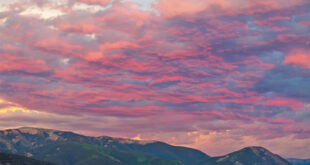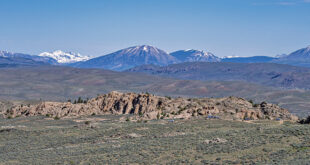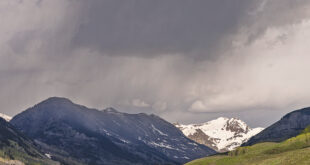With the Summer Olympic games in Beijing set to close on Sunday, August 24, a different kind of spectacle is about to begin. The world’s eyes will shift to Denver next week for the Democratic National Convention, a five-day party and media blitz set to take place in our own “front yard.” From the convention, it will be non-stop politics for the next two and a half months until we cast our ballots on Tuesday, November 4.
Here in Gunnison County, we can expect a fair bit of politicking to commence shortly as well. Our ballots are going to be particularly jam-packed with several issues and a high-profile election.
First, the Gunnison RE1J School District is seeking to pass a large school bond to pay for much needed improvements at area schools. The district is currently putting the finishing touches on its ballot question. In addition, the Gunnison Valley Rural Transportation Authority will ask voters to renew the roughly .6 percent sales tax that funds the organization.
Also, Mt. Crested Butte is seeking to pass two separate fiscal measures. The first will seek voters’ permission to withdraw more than $7 million in municipal bonds for maintenance and other projects. The second ballot question is actually a trio. If passed, the measure would allow the town to keep more of the tax revenues it collects (rather than returning funds to comply with Taxpayer’s Bill of Rights restrictions), continue a 0.5 percent sales tax that’s set to sunset and increase the town’s taxes on property. Mt. Crested Butte will hold a public meeting on September 4 to present its financial plan and take comments on the ballot issues.
Even with those hefty measures, the biggest show in town will be the race for two seats on the Board of Gunnison County Commissioners.
Two years ago, the Republican Party didn’t put up a candidate against incumbent commissioner Jim Starr. Crested Butte South resident Al Smith ran as an independent. Prior to that in 2004, incumbent Republican commissioners Perry Anderson and the late Fred Field lost their seats to challengers Paula Swenson and Hap Channell, both Democrats. This election, Swenson and Channell are taking on two challengers of their own, Republican candidates Doug Sparks and Erich Ferchau.
I had the opportunity to sit down with the candidates last week at a meeting hosted by the Community Foundation of the Gunnison Valley. Somewhere in that discussion, an interesting question was posed. How can our community host an election cycle that would be seen as a model for other communities to emulate?
To be honest, I was hesitant to participate in the foundation’s process—not because I don’t like the concept of conducting our elections in a fair, open way that encourages dialogue between citizens. However, I didn’t like how the foundation’s push for “civility” became a weapon during previous election cycles. There was finger pointing over who was complying with it, who wasn’t, who was in charge of policing the term.
As we delve into our local elections, I’m confident we can avoid the less-than-civil behavior.
It starts with open communication between the local political parties, as I witnessed last week. I understand that these candidates are in a tough position—they can’t monitor every action that is taken in their name by supporters. But if things start going awry—and if we start seeing personal attacks on opponents—the candidates should be the first to pick up the phone and try to straighten it out. Toward that end, it would be beneficial to have another sit-down event hosted by the Community Foundation once the election truly gets rolling.
Of course, we all play a role in making our election cycle issues-based and not personality based. The candidates can help us with this by articulating how they differ from their opponents and developing solid platforms. We don’t need campaign slogans as much as we need concrete, developable plans on how to move the county forward.
As we move into our own kind of election frenzy, we should keep in mind a notion that one attendee at the foundation’s meeting addressed: As she put it, “We’re a community before the election, during the election, and we’ll be a community after the election.”
Let’s make sure the dialogue stays healthy.
-Aleesha Towns
 The Crested Butte News Serving the Gunnison Valley since 1999
The Crested Butte News Serving the Gunnison Valley since 1999





